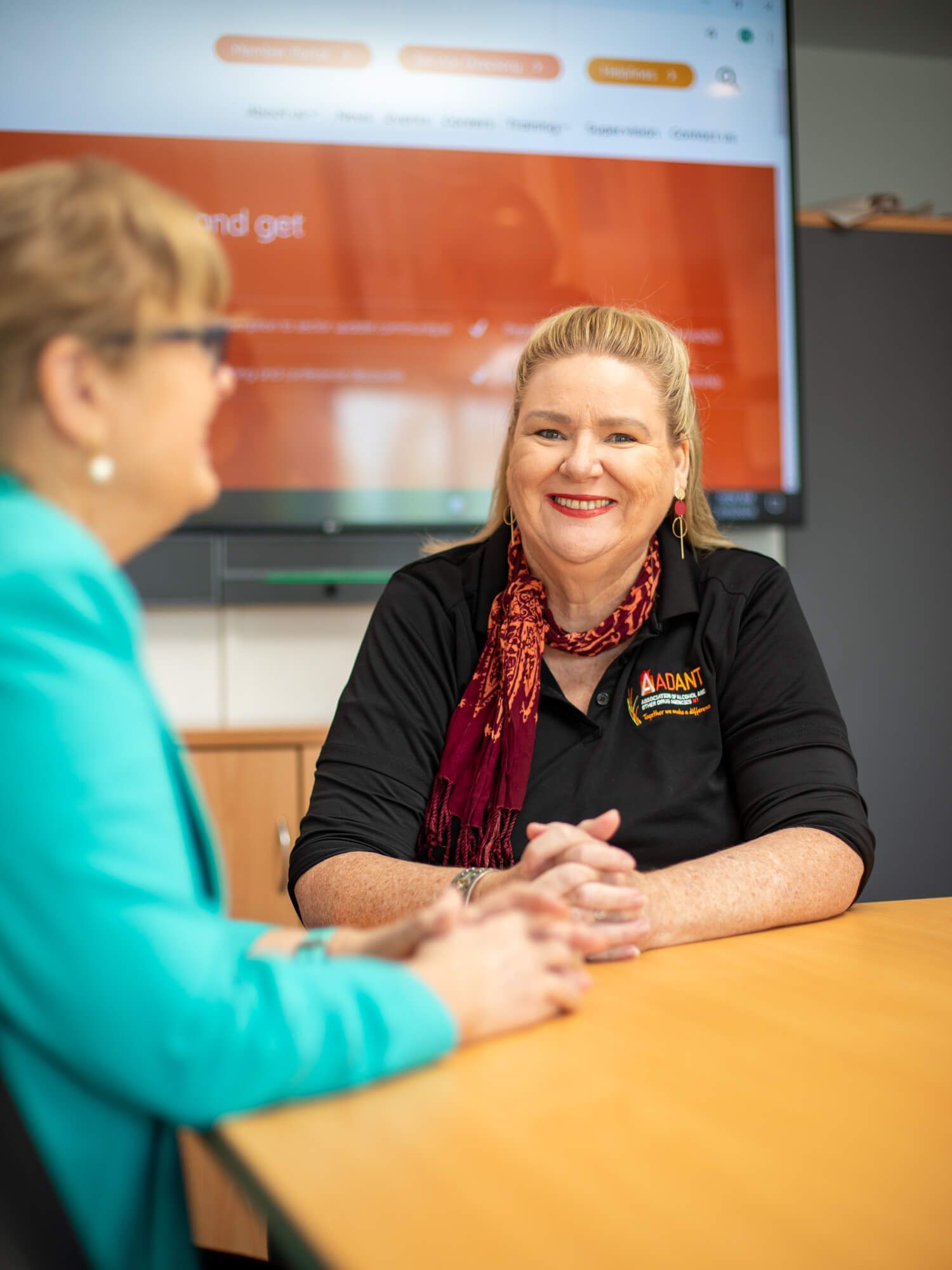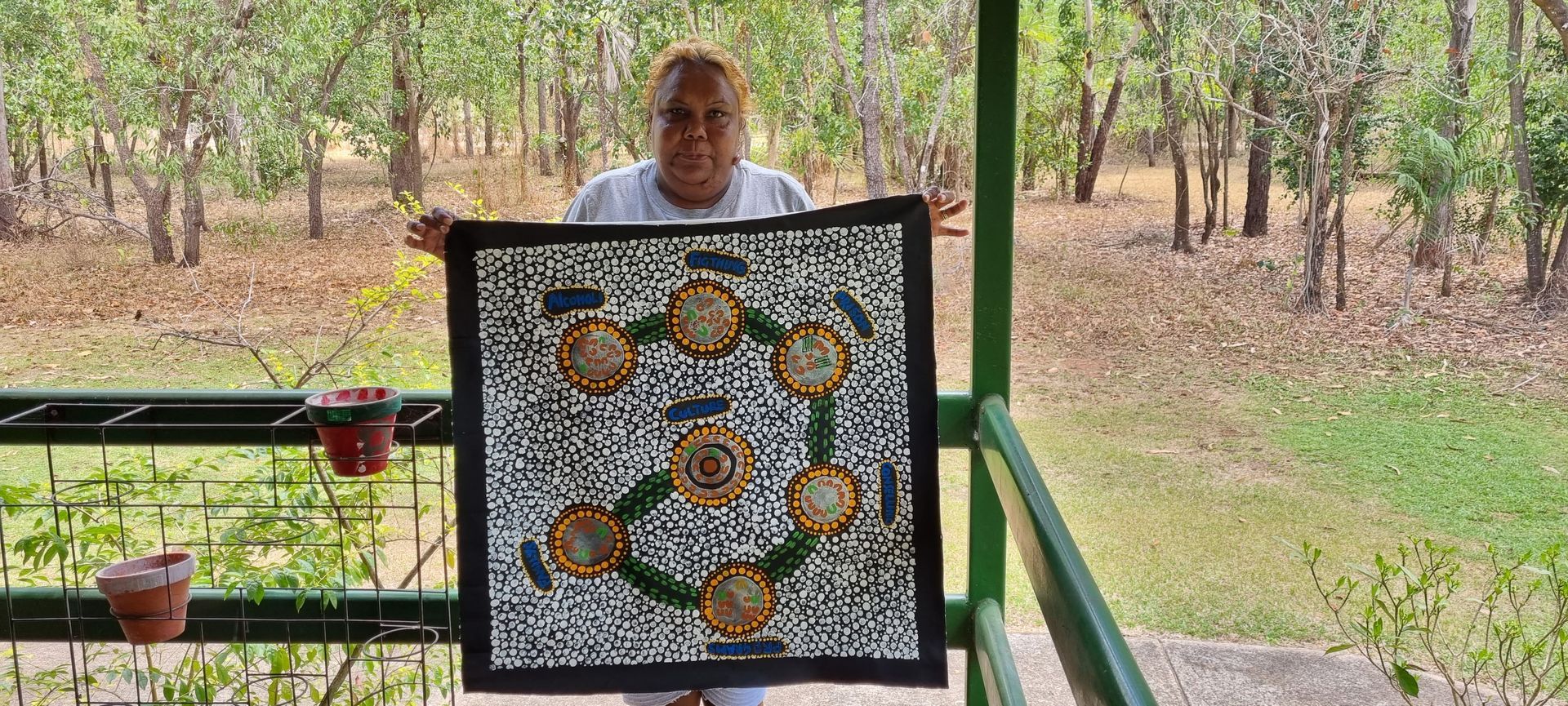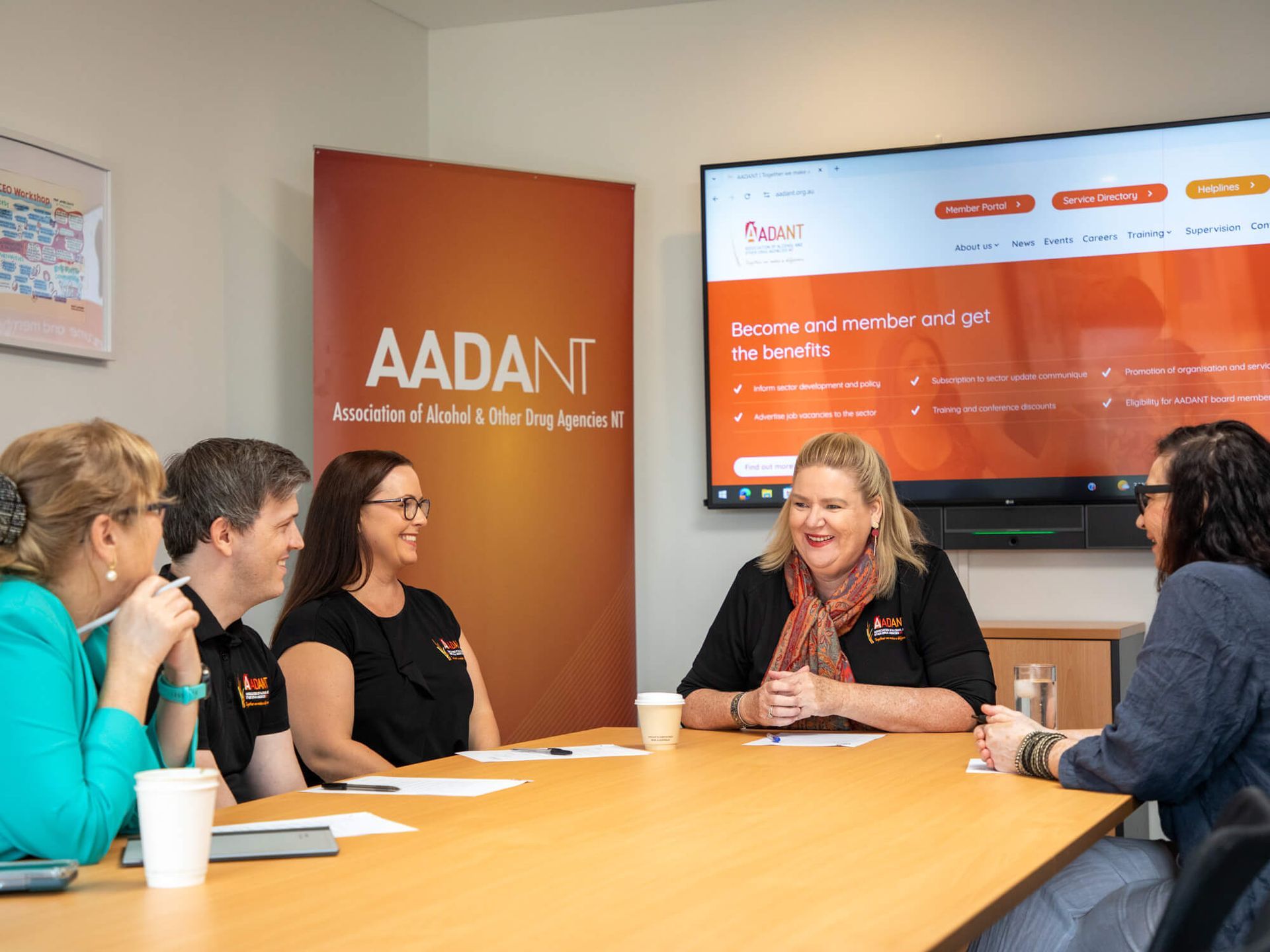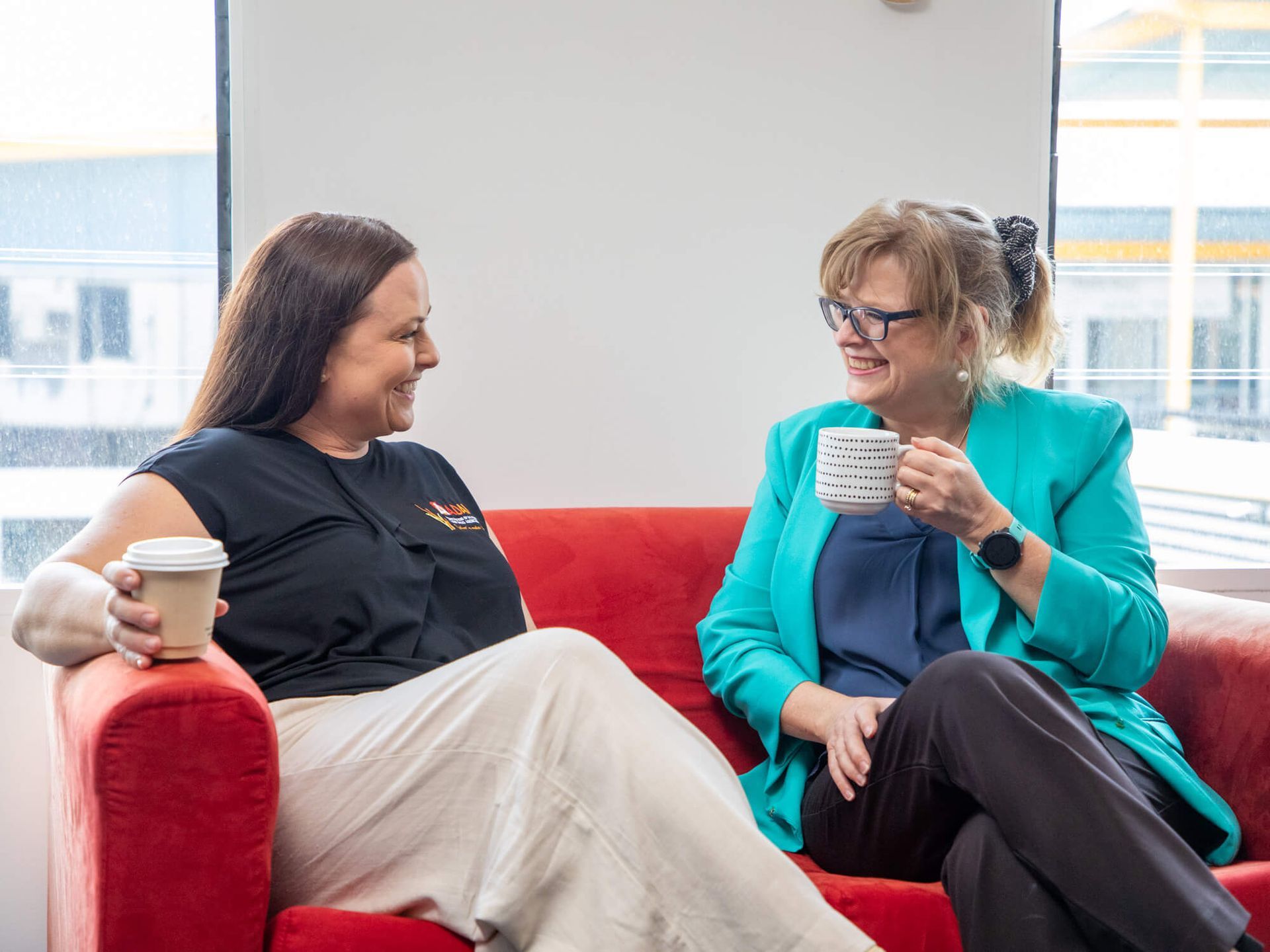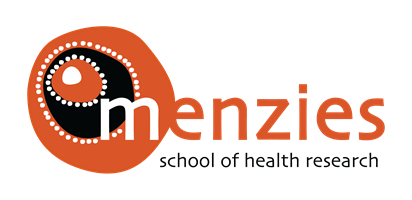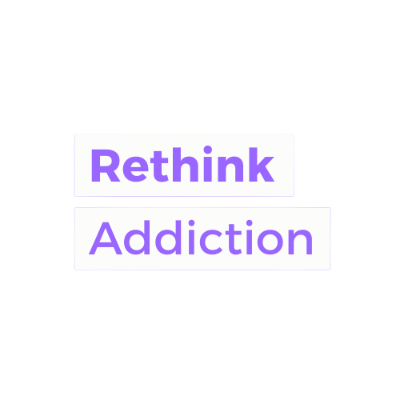Jeremy's Story
Jeremy, thanks for meeting with me today. We've touched base before, but it's always great to reconnect. Can you tell me a bit about your story, especially as it relates to your use of substances and recovery?
Alright, excellent. Thank you. My name's Jeremy Downes and I live with bipolar. I've lived with bipolar since I was a teenager, and I'm on medication for it, so I can be very high functioning with bipolar, or I can be very manic. To describe what it feels like- It feels like a living with a lifetime supply of amphetamines and having to take a tablet to stop you from feeling good, you know? So, I have grandeur, delusions and ideas and spend a lot of money and write letters to prime ministers and I have a good old time but, in the meantime, I'm having a great time, but I'm upsetting everybody, you know. So, I’ve been on medication for over 20 years now for my mental illness. I’ve never really looked at bipolar as a setback, and I still was able to work in a high-functioning position. I worked as an Aboriginal health practitioner in a remote setting in places like Tiwi Islands, Maningrida, Port Keats, Yuendumu and a lot of Central Australian communities as well, so a little bit about my work. What I did was we based our work on the concepts of primary healthcare. So, we that was about preventative medicine really. So, it was about giving education to community people about preventing illness. So, for example, if somebody had got cuts in their feet would treat the injuries and put on dressings for the wounds, but then would give education, say if you put on thongs or you put on shoes you wouldn't get this sort of injury. And that that's just an example of some of the work that we did. So, and we mainly related it to a lot of chronic illnesses. So, things like hypertension, high blood pressure, diabetes, kidney disease and preventable chronic diseases as well. So, it was about putting education back into the community. I really loved that job, and I worked in that position for over 20 years, and I worked on an on call role roster where worked at 8:00 to 5:00pm and then from five to eight the next morning. We’d be on call, and we’d take turns being on call for after-hours work as well, so I had a great sense of satisfaction being able to work in remote communities had the privilege of meeting families, experiencing culture and being part of the community network and your role in the clinic was pretty important to the Community because you're seen as a healer in the community. So, that was it was pretty good, so you know. My story is, like I said, I live with bipolar and I have manic phases where I can go a couple of years without a manic episode and then then for a couple of weeks I'm manic and having a good time, not upsetting everybody, and then I get back into the back into the swing of things with medications. But I think the hardest part about living with bipolar is it's not so much the the illness itself, but it's the the stigma of mental illness in society. So once people see you that that you've been mentally unwell, they label you as being mad or psycho or… They criticise your ability to be able to live a high functioning life. But that never really stopped me from working and doing things I loved so yeah yeah so. I'm pretty family orientated, I'm sort of a one of the one of five kids. My my mother's one of eight kids and my grandmother's, one of eleven kids. My father, he was a Englishman from a place called Hereford in England, and he passed away when I was very young, so I don't remember him and my mother and grandmother - they're Wiradjuri people from Cootamundra in southern NSW and the Riverina. So, I sort of was brought up by my mum's family. So, I'll get to sort of meet all the uncles and their aunties. Yeah, I only really know my mother's family so, but I left NSW when I was very young, older, not very young. Say when I was in my late teens, early 20s. And I was interested in Indigenous primary healthcare. So, I sort of came across to Darwin and did a traineeship with Danilla Dilba which was the Aboriginal Medical service in Darwin to undergo my Aboriginal health practitioner training. So, the training itself went for about 12 to 18 months and we did it in block releases where we spent a few weeks in the class and then we're buddied up with other health workers in the clinic to get that clinical exposure. Yeah. And we did that for about 18 months until we got our qualifications and we were registered with APRA that to be able to work independently in clinics by ourselves. That's where my interest in indigenous health came from. Yeah. So just seeing that, that there's a big need in society for education and to try and help families battle through chronic illnesses and injuries, you know, that are preventable. So yeah. I've got 7 kids. They live on Tiwi Islands. I've got a stepdaughter. I’ve got a daughter to my first marriage and then five kids to my ex. So, between my and hers and ours I've got 7 children. They still all live on the on the islands, and no matter how much I try to bring them into Darwin to relocate and live a more urban lifestyle, they just can't do it. They can't adjust. They love their island life and the freedom in the community so much and they still practise their culture, speak their language and learning kinship about relationships with other people in the communities. My daughters are hoping to get into nursing or followed my steps. Follow my footsteps and be Aboriginal health practitioners as well. So, I’m pretty family focused. My struggle with addiction was when I went through when my first marriage. I went through a a bad relationship and I didn't really know how to deal with stress. I was dealing with a dysfunctional relationship I was trying to work. I lived with a mental illness, so having to try and set boundaries from my mental illness and to live with the mental illness and control that aspect of my life, but I just couldn't deal with all the all the stress, so I started smoking a lot of ganja, started smoking cigarettes. And drinking a lot and that was a that was the worst thing because it just set me off like a time bomb. So, I lost a lot of weight. I wasn't eating. I was just enjoying myself. I was really self-medicating. I didn't know how to deal with stress. I didn't know how to deal with my problems and I was just running away from reality really. So, I did that for about 12 months and started to realise that that, that there was more important things in, in, in life that were that were more meaningful to me, such as family. And it wasn't to until I hit rock bottom and I ended up in Cowdy Ward that I realise there's more to life than just drinking and smoking and self medicating. I need to be strong for my family and and for my kids as well, so yeah.
What were some of the things that helped you on that recovery journey? Obviously, connection with family and community sounds like it's really important. Were there other things that also supported?
Yeah, yeah. So some of the things that supported me with my mental illness and my drug and alcohol addiction was either networked with the mental health coalition with Noleen Armstrong and with the NT lived Experience Network to help me with my recovery. I stopped drinking. I still smoke cigarettes, but I've cut down a lot, and I stopped smoking a lot of ganja now. I'm learning to deal with stress so... So, I'm learning to deal with stress now and realise that that family is more important and that's my that's my main goal in in my recovery is to stay focused, stay strong and I think if I do go off the rails my kids are seeing what I'm going through, and I don't want them to normalise my behaviour so I want to be there for them. So, I want to show them the difference between what's right and what's wrong. Alcohol and and drugs are not the way to manage stress or to run away from your problems, but it's about being strong as a person and being supported by a family, yeah. What were some of the things that helped you on that recovery journey? Obviously, connection with family and community sounds like it's really important. Were there other things that also supported? It's a really great message.
Yeah, I think. of hope for other people that might be on a similar journey.
Yeah. Yeah. So I lived in remote Aboriginal communities for over 20 years and I love my work and I had a manic episode and had a relationship breakdown and was forced to leave the community that I was living in and my ex-partner and my family still live in the community. But I live in Darwin now and I've faced problems such as homelessness for the first time, so I stayed in places like the Sunrise Centre, which is a homeless centre in Berrimah which is run by Salvation Army and then I stayed in the Bakhita Centre, which is a homeless centre for single men in Coconut Grove Grove and that's run by Saint Vinny de Pauls. But. And now I've moved into a team health, accommodation and team health is a mental health non government organisations in Darwin that does that takes care of people that live with chronic mental illness problems, they they help you with your journey of recovery as well. I’ve started started working again, so I'm doing voluntary work now at Vinny de Paul's as a storeman and I'm still very family focused. I speak to my kids every day on the phone and they come across to Darwin as much as they can to come and visit me. I'm drug free. I'm alcohol free and I'll just take one day at a time for my recovery.
So yeah, that's really awesome, Jeremy. Sounds like your kids have some great connections too, both with you, but also to culture and country out on Tiwi, yeah
Yeah, careful. Yeah, my kids, they they love going out fishing. They eat a diet of turtle, turtle and dugong and magpie goose. They're very keen into AFL, into football. And yeah, they sort of love the fishing and they and the islands, the island lifestyle and living in a tight knit Aboriginal community where they've got all their family with them and they're still there, they still able to connect to their kinship and to learn their cultural identity in the community.
Because all those things I've heard are very and seen with people are very protective, I guess in other people's journeys, having connection with. Culture. Language, country.
Yeah. So, I think part of part of my journey is about connection. So it's about connecting, and for my kids as well as family, they got a connection to culture, connection to country. The connections with their school and school sports and AFL and in their hunting so and that that makes me feel sort of pretty proud and connected to be part of their family as well on the island so yeah.
Wow, yeah. Connection. It's kind of the key hey. Yeah, so it's about being strong, it's about knowing your boundaries, it's about your identity and the community. Know who you are, where you're from, know who your family is, and being a strong role model for your family, yeah.
That's an awesome message, yeah. Is there anything else you wanted to share, Jeremy?
I'd just like to say for people that are going through the same journey with mental illness and drug and alcohol addiction that you just take one day at a time. Set yourself goals. If you relapse, still set your same goals but just take that one day at a time. Find a positive supportive network of positive people to be around so family, friends. Network with the social circles that are going to support you with your recovery. So, whether it's a mental health coalition or NT Lived Experience Network. You can tap into AA or NA. It's about finding people having the same issues as you but being in a supportive environment, knowing that you're not alone. And there's people that are going through the same journey as you. So I think that the key message is to take one day at a time.
Yeah, I think that'll mean a lot for people here that will read this story as a take home message.
Yeah, So I think my motivation for being strong and healthy was I wanted to be there for my kids. I wanted to be there for my family. I didn't want them to see me manic, or I don't want them to see me on drugs. I don't want them to see me drinking. I wanted to be a positive role model in their lives and to be able to guide them through their… Give them guidance and support them with growing up and becoming good people.
If you or someone you know is struggling with an alcohol and other drug issue, call Alcohol and Drug Information Service for free confidential counselling, support, information and advice on 1800 131 350, or view our
Service directory to find services available in your area.
